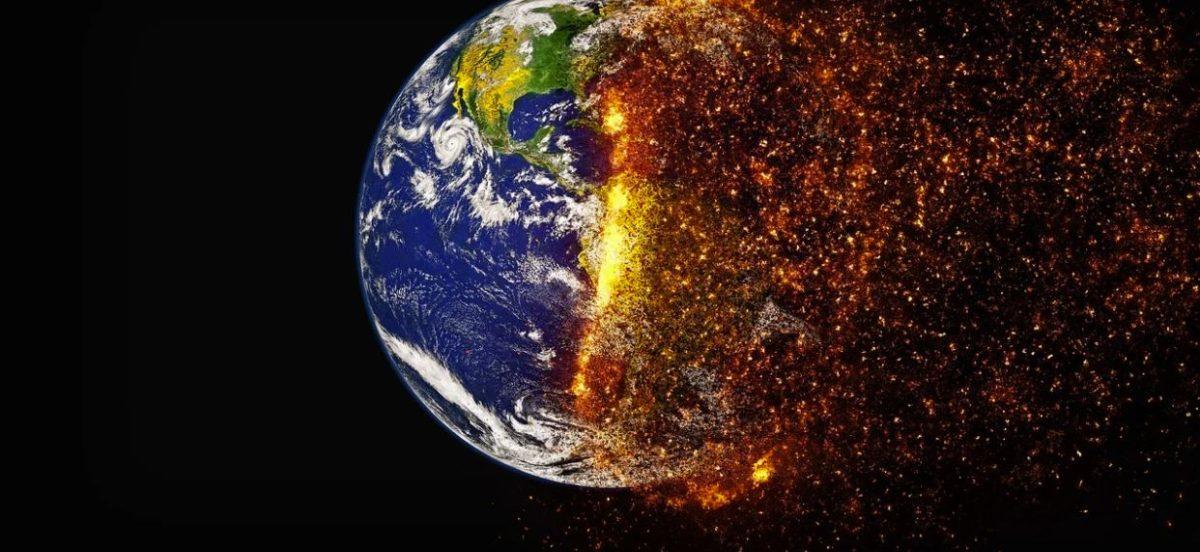Death. This is the sole comfort that Rachel Schmidt, a 19-year-old college student, can find in her struggle with climate anxiety — and she is not alone in her plight.
“I actually think that climate change calms me down. Like, whenever I feel like I am having some type of identity or existential crisis I remind myself that oh, maybe the planet will be on fire in like 50 years and none of this will matter,” Schmidt said.
Eco-anxiety is the “chronic fear of environmental doom” stemming directly from climate change and its effects on our global environment. Symptoms include paranoia, panic attacks and obsessive thoughts.
In New Jersey, sea level rise has worsened flooding along rivers and coasts, causing property damage and displacing people from their homes. Increased global temperature has also resulted in escalating instances of extreme weather.
In a global survey from the University of Bath, many youths aged 16-25 reported feeling anxious, angered, and ashamed about climate change, admitting this is a topic that affects their daily lives. Fascinated by this data, I conducted my own informal survey of local New Jersey young adults, 20 in total. The majority of these participants were Rowan University students.
I found that over half of my participants agreed that climate change scared them. Thirty-six percent of participants agreed that they consider climate change as a factor in whether or not they wish to start a family.
“What right do I have to bring children into a doomed world,” one participant said.
“Starting a family would require a planet to live on,” another said.
Aside from the guilt of bringing kids into a world riddled with environmental degradation, kids themselves, or the increase of, can potentially worsen climate change. One study shows that having one less child saves 9,441 metric tons of carbon dioxide from entering the atmosphere, more than would be saved by just practicing environmentally friendly behaviors over your lifetime.
While younger children may not be as directly informed on climate change as you and I, they still experience its damaging effects. One study linked an increase in air pollution, a catalyst for climate change, with mental health disorders in children. When the studied fine particulate matter was found in increased quantities, visits to the children’s psychiatric ward also increased in the same region.
Furthermore, disadvantaged children were found to be more vulnerable, especially to developing anxiety and suicidal thoughts. This is due to existing socio-economic issues that make climate change more impactful within these children’s settings. Regardless, it should be unacceptable to watch children develop preventable mental health issues. Indirect or not, I believe our inaction has helped children to kill themselves.
So, what changes can be made to help children and young adults minimize and manage their climate anxiety?
The best answer is stopping climate change. Although this is not easily accomplished, passing legislation would be a good starting place. From the same local survey mentioned previously, 84% of participants agreed they were dissatisfied with their government’s response to climate change. Although we have seen recent action at the Glasgow Climate Change Conference, additional laws and policies restricting emissions will help settle the planet and the worry in young people’s minds.
Changes in education may also help reduce climate anxiety. Although the saying goes “ignorance is bliss,” children will still hear about climate change through the news, social media, family and friends. Therefore, it is important to inform young people about both the perils of climate change and the good being done.
With all that being said, how does one accomplish these changes?
With regards to legislation, one option is to contact your local state and federal government representatives by either sending a letter detailing your own struggles and thoughts on current policies or through peaceful protest. There have been many environmental protests over the years, including the recently resumed “Fridays For Future.”
You can help work for changes in education, to properly inform children about climate change without leaving them in fear for their lives. You could employ an environmentally friendly lifestyle at your own home, to help alleviate some of the guilt that comes with climate anxiety. Young adults could start groups that make an effort to clean their local area.
Climate change is a real and pervading fear in the minds of many children and young adults that will only be alleviated after we do something about it. In a changing world, we have to change ourselves, either out of guilt or compassion for each other.
For comments/questions about this story, tweet @TheWhitOnline or email [email protected].

























































































































































!["Working with [Dr. Lynch] is always a learning experience for me. She is a treasure,” said Thomas. - Staff Writer / Kacie Scibilia](https://thewhitonline.com/wp-content/uploads/2025/04/choir-1-1200x694.jpg)










































